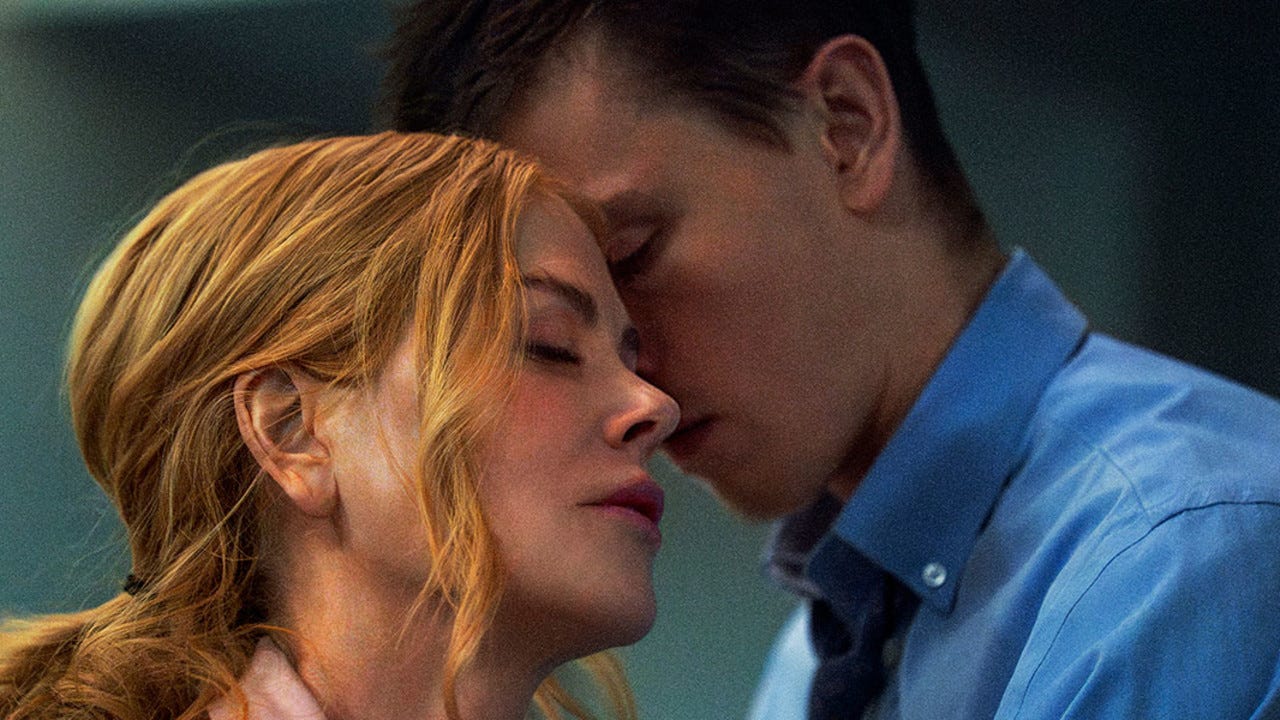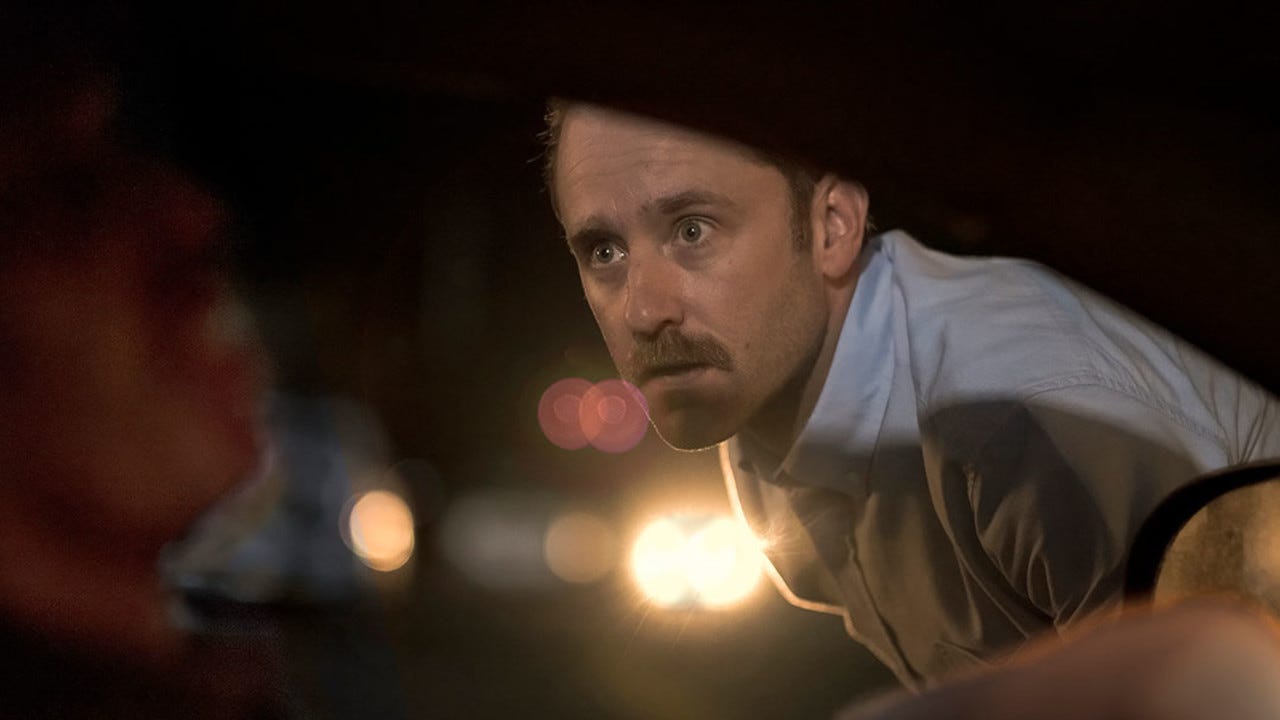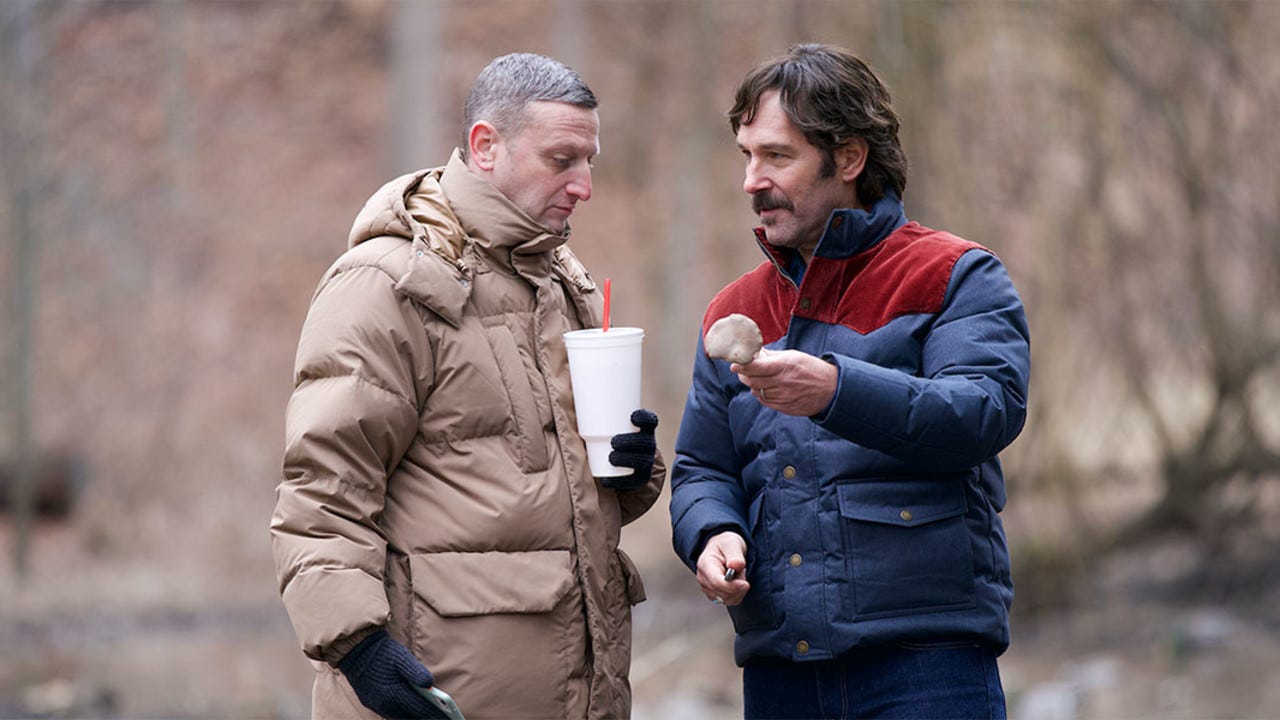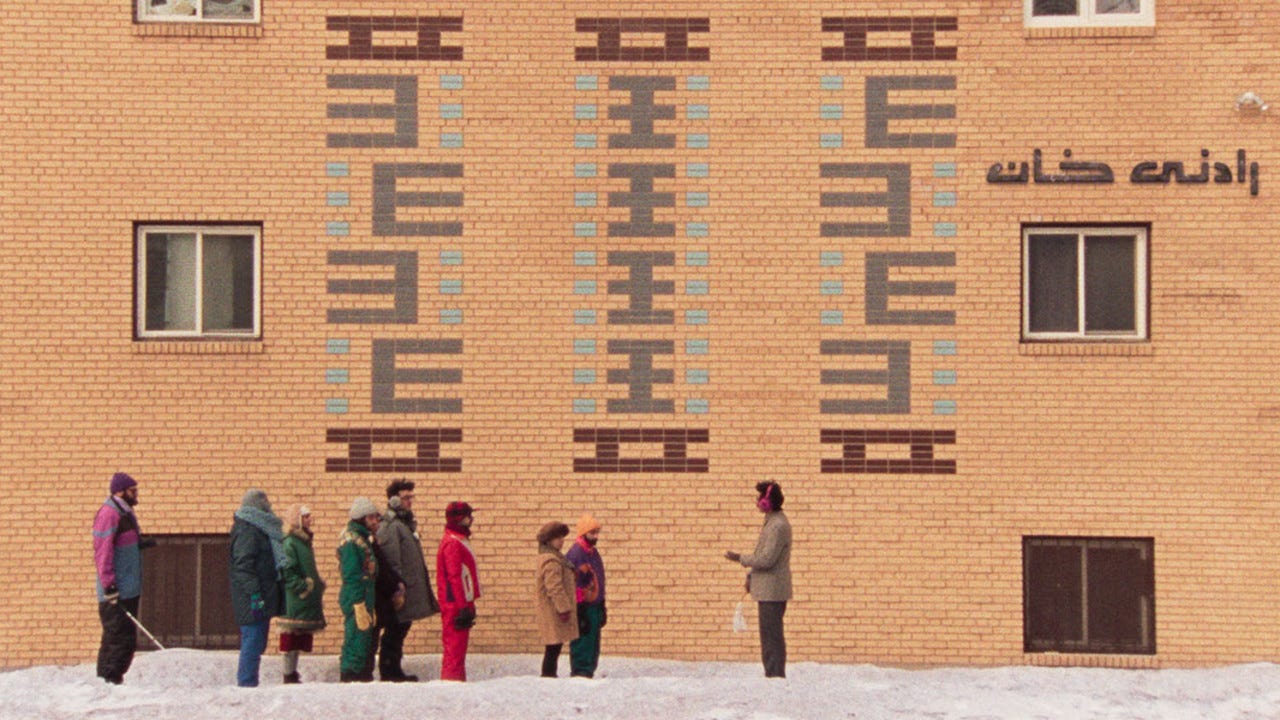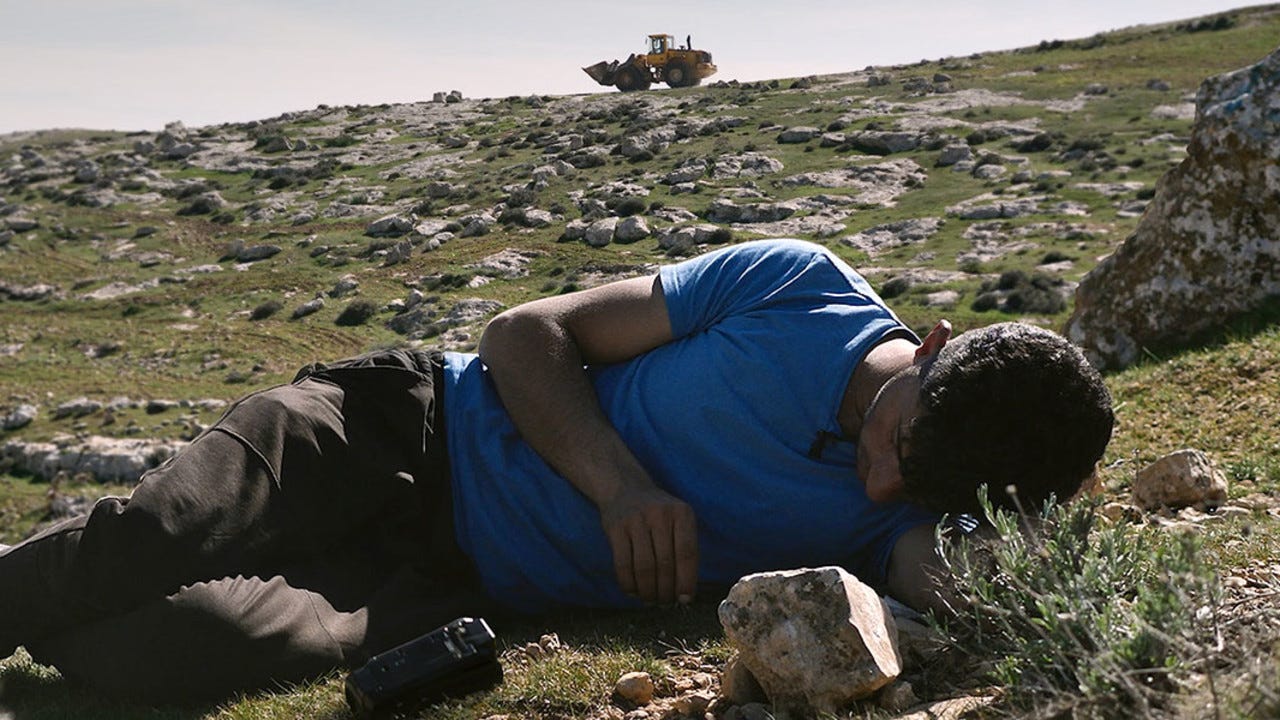The seventh day is usually when things start to feel like they’re winding down. Press and industry are leaving town, Festival Street fades into memory, the bubble around those few blocks of TIFF venues starts feeling more and more like a part of the city again, and everyone looks very tired. Still, I saw five movies (and did a non-TIFF-related interview in between, and stayed way too late at a party). Speaking to others who’ve done the festival hard, a concensus seems to have emerged that this year’s lineup has been good. Very good. I’d venture to say it’s the best the festival has been in years, Ticketmaster hiccups aside. And that’s still with a few more days to go, and plenty more films I intend to catch. You need only peruse my TIFF dispatches from throughout the week to see very few outright duds, some nice discoveries, a lot of good and even great films, and at least a few reaching levels of moviegoing transcendence.
I have my complaints about the festival organization; their corporatism, their awards-chasing and ass-kissing, their public ticket prices. All that said, this year presented such a broad sweep of cinema from around the world, both world premieres and selections from other festivals, and for the first time in ages, it’s felt like TIFF was actually an event centred on finding and watching good movies above all. Though I do think a number of the marquee titles raise questions about TIFF’s curatorial leadership, I also have to admit my own snobbishness. I’m well aware, for example, that most people who attend the festival will not agree with me that The Shrouds is one of the best, most poignant films on offer. In fact, I’ve had multiple people at screenings turn around to me as I’ve discussed it to express astonishment that anyone might like it. That’s fine. The festival invites all comers. That’s why the Elton John documentary is there, and I have overheard at least a couple of people praise that one. I’m happy for them, genuinely, that they got out of the house to commune with cinema of whatever stripe and had a rewarding experience. I cannot be above that. I really do believe in cinema as the great mass art form, or at least its potential, and this year that potential has been evident in spades.
My first movie of the day, at a 9 am P&I screening, was Halina Reijn’s Babygirl. It was a few years ago now that I saw her film Instinct at the festival, a fairly decent European art house movie about a woman indulging sexual desires she knows she shouldn’t. It was fine. Babygirl is the film I wish Instinct had been. Nicole Kidman plays a big CEO who gets into an S&M kinda relationship with an intern, the excellent Harris Dickinson. Where Instinct was a little too pitched at seriousness, Babygirl understands that first and foremost an erotic drama like this should be fun, and funny. Babygirl is very funny, knowingly, intelligently. This is a movie that pulls the hilarious move of casting Antonio Banderas as a man who cannot satisfy his wife—Antonio Banderas!—and rather than just leave it as a sly joke, it’s an integral element of the dramatic themes at play. Reijn has crafted a great movie about the messiness of desire, the individuality of it, the danger of it, the fun of it, and the hotness of it. Kidman, somehow underrated as one of the great actresses of our lifetimes, is in top form, and Dickinson owns the screen. Most of all, the film is a riot.
From there, I ran (biked) home to conduct and record an interview. That’ll be coming out in a little over a week. It’s got nothing to do with TIFF, but I’m quite excited for it to be published, and was very excited to do it at all.
A little rest, and then I was back riding down John St. to catch the Canadian thriller Sharp Corner, from director Jason Buxton. There used to be a specific kind of Canadian movie, more common a couple decades ago. It’d usually have at least one great American actor in the lead, which would bring with it enough financing to take the level of production up a notch or two above the usual Telefilm fare, and it’d obviously be made with an eye toward distribution in the States, but mostly it’d just end up in regular rotation on The Movie Network. The ideal case is Owning Mahoney, a great little true-life drama starring Philip Seymour Hoffman. Sharp Corner is that kind of movie, and while it’s not Owning Mahoney, it’s satisfying in similar ways. Just well written enough, just well directed enough, with a level of production that doesn’t scream bargain basement, and enough wit, humour, and satisfaction to make it a good cable watch (or perhaps, these days, something to stumble on while scrolling through Crave’s selection). Ben Foster, doing a pretty solid, vague Canadian accent, is a guy in a shitty office job who’s just moved with his wife and young kid into a big new house, sold suspiciously cheap. On their first night there, they learn why, when a car veers off the sharp turn right out front, slamming into their tree, sending a tire flying through their window, and killing the teenage driver. Those crashes are a regular occurrence thanks to poor road design, but rather than, say, going to city hall to find a fix for the problem, Foster’s character finds himself strangely obsessed with the crashes, and with all that death, and with this idea that he might be the one to save a victim. The obsession slowly tears his family life apart, as you’d expect. Things also get dark, with something like a Falling Down vibe wafting off the character, and an ending that’s just daring enough to feel worth it.
Next up, one of my most-anticipated of the festival: Friendship, from writer-director Andrew DeYoung, and starring the great Tim Robinson. Imagine, if you will, a Tim Robinson sketch about him becoming friends with Paul Rudd (and fucking it up, of course), stretched out to feature length. Now imagine that somehow didn’t wear out its welcome. Frienship is so fucking funny. So fucking funny. There’s almost nothing else to say about it, because nothing needs to be said. The joke that opens the movie had me laughing uncontrollably for a minute straight, and I don’t even know that it was the funniest joke in the movie. Members of the Rap World crew also make appearances in the film, which made for some nice (unofficial) TIFF synergy, and it makes sense, too. Robinson and O’Malley are part of a wave of weird, loud, white guy comedians who’ve perfectly tapped into the realities underlying domesticated, suburban life. A joke involving Subway in the film is one of the funniest, most perfectly observed statements about the banality of an easy (North) American life, the fruits of the neoliberal order. To be clear, I don’t mean funniest, as in, “Ah yes, that’s so amusingly astute.” I mean my sides hurt from laughing so hard.
Maybe not quite as outrageously hilarious as Friendship, but not far off either, is Matthew Rankin’s Universal Language. Hailed at Cannes, and now Canada’s submission for the International Feature Oscar, the film images a strange, alternate, almost outside-of-time Canada in which the two official languages are French and Farsi. Much of our culture is basically Persian, despite still having Tim Hortons and Trudeau as Prime Minister and Louis Riel. There’s plenty of Iranian cinema influence to be found here, as well as something resembling Aki Kaurismäki in terms of funny, mournful tone. Rankin shoots everything to accentuate but also limit the environment of his fictionalized Winnipeg. A cold place of brutalist greys and beiges and soft tan brick, of walls and walls and more walls, and some highways and interchanges. It’s all very funny (running gags about turkeys as especially hilarious), but also funny in a melancholic way, and that streak gives way to a profound meditation on connection, disconnection, family, memory, loss, and life. If that sounds vague, it’s only because I wouldn’t want to spoil the film’s emotional revelations, but there was a moment near the end, in which two characters effectively switch places, that broke me. This is one of the best films of the year, easily. Decade, maybe. One of the best Canadian films ever made, certainly.
Finally, despite feeling kind of tired, kind of done with the day, I made my way over to the Lightbox for a 10 pm screening of the documentary No Other Land. Made by the filmmaking team of Basel Adra, Yuval Abraham, Hamdan Ballal, and Rachel Szor, and featuring Adra and Abraham, the film captures a part of the years-long effort by Israel to demolish and ethnically cleanse the Palestinian villages of Masafer Yatta in the West Bank mountains. It’s a story of destruction and violence and humiliation, and of activism and the connections made over seemingly unbridgeable divides, and it’s about hope and the absence of hope, and it made me incredibly angry and upset, for human reasons and for personal reasons. People need to witness these things. I only wish more people would understand them.




